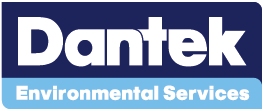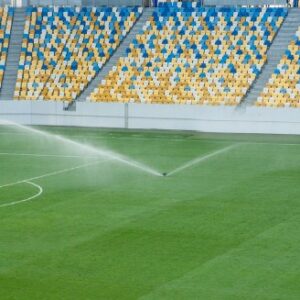Recycled water system in sports facilities
Recycled water system in a sports facilities -Examining the challenges and best practices for managing Legionella and microbial risks in recycled water systems.

As a responsible person overseeing a sports facility, you understand the critical importance of prioritizing the safety and well-being of athletes, employees, and visitors. One critical aspect of ensuring safety is managing the risks associated with Legionella bacteria in recycled water systems. In this article, we will explore some example control measures that can be tailored to specific sports facility water systems following a Legionella risk assessment and the manufacturer’s recommendations.
Recycled water system in sports facilities – Legionella Risk Assessment:
Before implementing control measures, it is essential to conduct a comprehensive Legionella risk assessment specific to your sports facility’s recycled water systems. This assessment will help identify potential sources of Legionella contamination and evaluate the susceptibility of the system to bacterial growth. Consulting with experts, like Dantek, we can ensure a thorough evaluation and development of an effective control plan.
Example Control Measures for Recycled water system in sports facilities
Temperature Monitoring:
Regular temperature monitoring is a critical control measure to prevent Legionella growth. Specifically, during late spring to late summer, when ambient temperatures tend to rise, monitoring the water temperature becomes even more crucial. It is recommended to keep a close eye on temperatures within the system, ensuring they do not exceed 20°C.
Purging of Pressure Pump, Filter, and Hose:
In the event that temperatures surpass the recommended limit of 20°C, immediate action should be taken to prevent potential Legionella growth. Purging the pressure pump, filter, and hose helps eliminate stagnant water and reduce the risk of bacterial proliferation. This control measure ensures that any potential breeding grounds for Legionella are thoroughly flushed and refreshed.
Flushing and Cleaning:
Develop a routine flushing and cleaning schedule based on the manufacturer’s instructions and the specific requirements of your water system. Flushing stagnant areas and cleaning components, such as hoses, filters, and tanks, helps prevent the buildup of biofilm and bacteria.
Water Sampling and Testing:
While temperature monitoring and purging are important control measures, regular monitoring for Legionella growth should also be conducted. This involves taking water samples from different points within the system and testing them for Legionella presence and concentration. Monitoring enables the early detection of any potential Legionella contamination, allowing for timely corrective action.
Water Treatment:
Depending on the system’s design and characteristics, consider implementing appropriate water treatment methods. These may include UV treatment, chemical disinfection, or other proven techniques to control bacterial growth. Consult experts to determine the most suitable treatment options for your specific system.
Maintenance and Servicing:
Adhere to the manufacturer’s recommendations for regular maintenance and servicing. This includes tasks such as equipment inspections, filter replacements, and calibration of monitoring devices. Following the manufacturer’s guidelines ensures optimal system performance and identifies any potential issues.
Effectively managing Legionella risks in Recycled water systems in sports facilities requires a tailored approach based on a Legionella risk assessment and the manufacturer’s recommendations. By implementing key control measures such as temperature monitoring, flushing and cleaning, water sampling and testing, water treatment, and regular maintenance and servicing, you can mitigate the risk of Legionella bacteria growth and maintain a safe environment for athletes, employees, and visitors.
Remember, each Recycled water systems in sports facilities are unique, and control measures should be customized based on the Legionella risk assessment and manufacturer’s guidelines. Consulting with experts like Dantek can provide valuable insights and support in developing and implementing an effective Legionella control plan for your sports facility. Prioritize the safety of your facility and take proactive steps to ensure the well-being of all who use it.
Contact the Dantek team today. You can give us a call at 01454 417 920 or send an email to sales@dantek.co.uk. We’re here to assist you and answer any inquiries you may have. https://www.dantekenvironmental.co.uk/contact-us/

 In the world of sports, maintaining pristine playing conditions is of utmost importance. From football and cricket to golf and tennis, the quality of the pitch can greatly impact the performance and safety of athletes. One essential component in maintaining these optimal conditions is the irrigation systems. However, it is crucial to recognize that irrigation systems can also pose potential health risks if not properly managed, specifically when it comes to Legionella contamination.
In the world of sports, maintaining pristine playing conditions is of utmost importance. From football and cricket to golf and tennis, the quality of the pitch can greatly impact the performance and safety of athletes. One essential component in maintaining these optimal conditions is the irrigation systems. However, it is crucial to recognize that irrigation systems can also pose potential health risks if not properly managed, specifically when it comes to Legionella contamination.